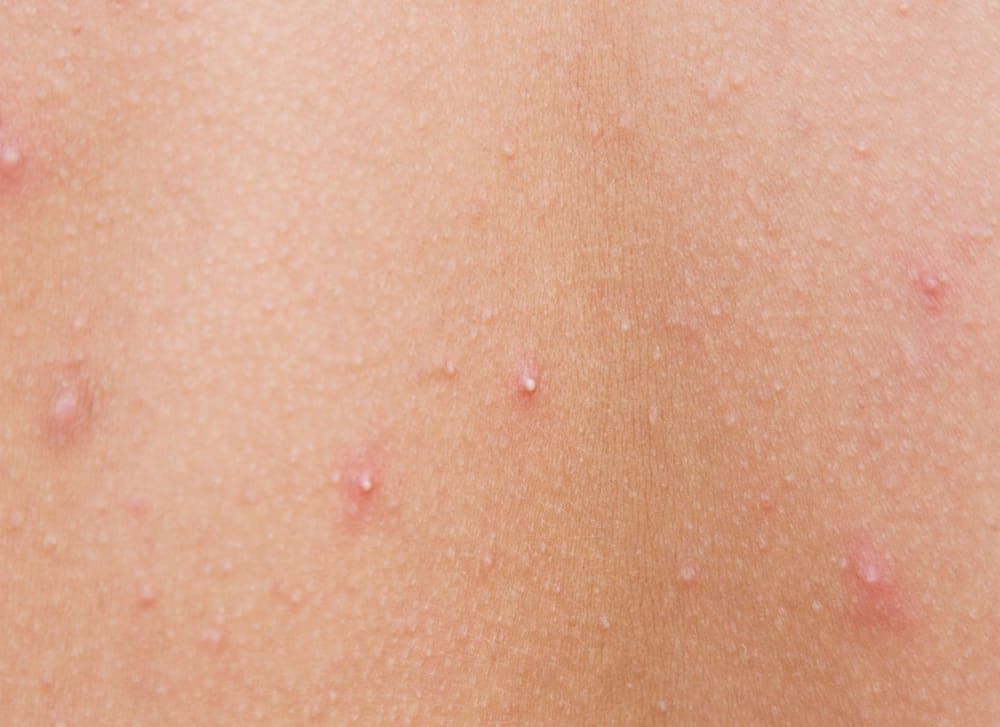Whiteheads on Nose: Causes, Treatment, and More

Are you fed up squeezing whiteheads on nose? Everyone wishes for a blemish-free, smooth and healthy skin, but the polluted environment, dust and dirt have adversely affected the skin quality. If not taken care of, the skin might develop acne, blackheads and whiteheads on nose.
Whiteheads are tiny stubborn white spots that form on your nose. The following article is about whiteheads on the nose, the causes and treatment in detail.
Scroll down to know the ways to get rid of stubborn whiteheads and achieve healthy skin.
What are Whiteheads on Nose?
Our skin has pores where the sebum (oil from the skin), dead skin cells, dirt, and dust get trapped by the environment. When these skin pores get clogged, whiteheads on the nose occur.
If the pores close up, white bumps happen on the skin. These white bumps are nothing but whiteheads. Unlike blackheads, whiteheads have closed heads. Therefore, squeezing whiteheads on nose cannot remove them.
Blackheads and Whiteheads on Nose
Whiteheads on the nose are nothing but clogged pores under your skin. They occur when there is a thin layer of skin covering the pores. The collected dirt and sebum lies underneath this layer that often gets stuck under the skin. The stuck debris forms a plug known as whiteheads. Whiteheads on the nose have a white tip on their surface and are not usually inflamed.
Blackheads are open pores that are deeply embedded into your skin. These open pores are filled with dirt and sebum. The dirt collects inside these pores and, upon contact with air, gets hardened. This hardened sebum and dirt mixes with melanin (your skin’s natural pigment) and becomes black.
Blackheads and whiteheads on the nose can be annoying at times. But you must try not to scratch or prick them. Blackheads last for a longer time than whiteheads and are challenging to treat.
Also Read: What's The Difference Between Acne And Pimples?
Reasons for Whiteheads on Nose
Whiteheads on the nose can be troublesome. Here are some of the causes of whiteheads on the nose-
- Sebum and dead skin cells
- Dirt and debris
- Bacteria
- Hormonal changes due to menstruation and menopause
- Polluted air and humidity
- Squeezing pimples
- Anxiety
- Stress
- Wearing oil-based makeup and skin products
- Genetic causes
- Family history of acne
- Wearing glasses
- Excessively scrubbing your skin
Causes of Whiteheads on the Nose
The skin pores have dead skin cells and sebum. Dead skin cells and excessive oil production make whiteheads ideal growing environment. The sebaceous glands of your skin produce sebum. The nose has the highest density of pores. Therefore, whiteheads most readily occur on the nose.
Three main reasons for whiteheads on the nose are
- Increased dead skin cells or excessive sebum.
- Excessive production of keratin (protein to produce hair, nails).
- An excessive amount of trapped bacteria and dust under your skin.
The above conditions can occur due to hormonal imbalance during menstruation or pregnancy. Other reasons include:
- Oil-based cosmetics
- Anxiety or anger
- Oil-based food consumption
- Oral contraceptives
How to Remove Whiteheads From Nose?
It is not easy to remove the stubborn whiteheads on the nose. The closed heads are not so easy to remove by just squeezing whiteheads on the nose. As a result, whiteheads on nose removal require specific treatments.
The treatments for the whiteheads on the nose removal include the following-
● OTC (Over-the-counter) treatments
The over-the-counter treatments use active ingredients for the management of whiteheads. They all work differently but ultimately act for whitehead on nose removal. The active ingredients are
1. Salicylic Acid
Use Salicylic acid as a cleanser or lotion. It cleanses the dead skin cells and restricts the production of keratin. Salicylic acid removes the damaged top layer of skin to remove trapped dead skin cells, dust and dirt.
2. Benzoyl Peroxide
A commonly used over-the-counter product, benzoyl peroxide, is available as a gel or wash. It kills the surface bacteria on your skin and prevents clogging. Lower concentrations of benzoyl peroxide are less irritating to the skin. It also helps to remove oil and dead skin cells from the pores.
3. Azelaic Acid
Azelaic acid is a natural acid derived from barley and wheat. It kills the microorganisms on the skin. It has anti-inflammatory properties and hence, also reduces swelling.
4. Alpha Hydroxy Acid
The alpha hydroxy acid works as an exfoliant on the skin. It is the most common over-the-counter product. The alpha-hydroxy acids like lactic acid, citric acid, and glycolic acid help avoid clogged pores. They remove the dead skin cells and bundles of keratin from the skin.
- Prescription treatments
If the whiteheads on the nose do not treat well with over-the-counter treatment, your doctor may recommend medications or alternative treatment methods. They include:
1. Oral Antibiotics
Antibiotics are responsible for killing bacteria. The oral antibiotic treatment will reduce the presence of bacteria on the skin. It will help in reducing whitehead occurrence on the skin.
2. Microdermabrasion
It is a process of cleaning your skin to remove the clogged oil, dead skin cells, dirt and dust. The dermatologist removes the topmost damaged layer of your skin to free the clogs and prevent the occurrence of whiteheads.
3. Strength Retinoids
The retinoids prevent the clogging of pores and break the whiteheads and blackheads. The strength retinoids are more powerful retinoids to prevent the clogging of the pores.
4. Laser Skin Resurfacing
It is a method to reduce the sebum in your skin. In laser skin resurfacing, a concentrated beam of light is directed to your white pores to act on your sebaceous glands and remove the oil present in your pores.
How to Get Rid of Whiteheads on Nose Naturally?
If the whitehead production is mild on your nose, you can go for whiteheads on nose removal home remedies. These are natural ways to treat whiteheads on your nose. If not treated completely, they can prevent recurring whiteheads. The ways to get rid of whiteheads on the nose naturally include:
1. Honey
Honey has anti-inflammatory and antibacterial properties. It can reduce the swelling of whiteheads and prevent the production of bacteria on the skin. You can apply honey after washing your face and leave it for 15-20 minutes daily for the best results.
2. Tea Tree Oil
Tea tree oil cleanses and tones the skin. It has anti-inflammatory, anti-microbial properties that help treat whiteheads. Many skincare products use it due to its healing properties.
3. Lemon Juice
Lemon Juice has cleansing and skin-drying properties. It removes excess oil from the pores and prevents clogging. The lemon juice acid also has antibacterial properties.
4. Witch Hazel
Witch hazel contains tannins (a substance derived from tree bark), which prevents the overproduction of oil in the skin. The regular application of witch hazel can give results.
5. Aloe Vera
The gel substance from the aloe vera plant has antimicrobial and cleansing properties. The gel reduces the bacteria on the skin, cleans pores and excellently treats mild cases of whiteheads on the nose.
6. Steam
Taking steam opens the pores and unclogs them. It loosens the pore to let out the dirt and dead skin cells. Hence, it works best in cases of stubborn whiteheads on the nose.
Squeezing Whiteheads on Nose
If you wish to squeeze the whiteheads on your nose, then follow these steps.
- First, apply a warm compress on the affected area.
- Press down on either side of your whitehead with clean hands.
- Do not squeeze or pinch the whitehead.
- Applying extra force can push the bacteria deeper into the pore.
Prevention for Whiteheads on Nose
To prevent whiteheads on the nose, follow this simple skincare routine.
- Wash your face twice a day to get rid of excess oil and debris from your face.
- Exfoliate to prevent the build-up of dead skin cells and avoid excessive scrubbing.
- Avoid constantly touching your nose and other affected areas with your hands as they may have germs and dirt on them.
- Wear a water-based moisturizer to ensure your pores don’t get clogged.
- Do not pick at a whitehead with your fingers, as that can lead to scarring.
When to See Your Dermatologist?
Whiteheads on your nose can be a challenging form of acne to get rid of. If the home remedies do not help naturally remove the whiteheads on your nose, consider consulting a dermatologist.
Summing Up on Whiteheads on Nose
Whiteheads are clogged pores in your skin with a white or skin covering. The swollen pores consist of trapped dead skin cells, oil, and dirt. The whiteheads on the nose occur because of excessive production of sebum in the skin.
The natural ways and whiteheads on nose home remedies work best to treat mild cases of whiteheads. Other treatments may include over-the-counter and prescription treatments.
If not treated, whiteheads can give rise to other skin-related issues as well. Hence, in the case of stubborn whiteheads, go see a professional immediately.
FAQs
Can Toothpaste Remove Whiteheads?
Yes, toothpaste can help remove whiteheads. The ingredients of toothpaste have drying properties. Hence, it may work on the swelling and remove the excess oil from the skin. But, there are other natural remedies present for more effective whitehead removal.
Does Apple Cider Vinegar Remove Whiteheads?
Apple cider vinegar has anti-inflammatory and anti-microbial properties. It is acidic and so can prevent the bacteria from growing. Therefore, yes, apple cider vinegar removes whiteheads. But, do not use it directly on the skin. Mix it with warm water and then apply.
What Food Causes Whiteheads?
Whiteheads occur due to excessive oil production in the skin. The high-fat and high-carb foods like refined sugar, dairy products, oily food, and fast food increase the oil production in the skin. It contributes to causing whiteheads.
References
- Rowena Jenkins, March 2014; Proteomic and genomic analysis of methicillin-resistant Staphylococcus aureus (MRSA) exposed to manuka honey in vitro demonstrated down-regulation - https://www.ncbi.nlm.nih.gov/pmc/articles/PMC3922154/
- Ashley Decker, May 2012; Over-the-counter Acne Treatments - https://www.ncbi.nlm.nih.gov/pmc/articles/PMC3366450/
- NIH, Acne - https://www.niams.nih.gov/health-topics/acne#tab-causes

